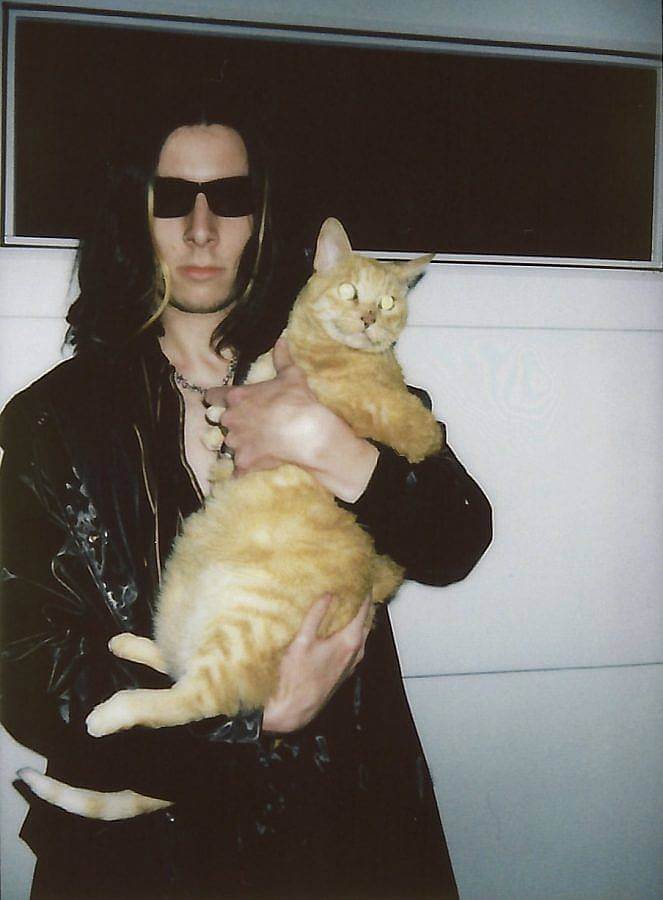Tell us a bit about yourself and what you do.
My name is Avery and I create music under the moniker Forget Basement. I’m currently based in Chicago but am originally from Seattle. I’ve just recently finished my degree in Music Technology at Columbia College Chicago. I grew up classically trained in piano, but gradually separated myself from classical composition as my interest grew in modern production and performance. I usually refer to my music as art-pop, but some have called it witch house and “deconstructed club”.
What is your usual approach to recording and producing music?
Album material often begins as a repeated phrase or sound within my head that I can’t seem to shake. I’ll record the phrase as a voice memo on my phone and reconstruct it in a DAW when I’m able and continuously build off of it. I tend to write the instrumentals based around one recurring chord progression and record vocals last. When I’m not writing material for an album, I’m practicing sound design so I’m able to accurately reconstruct the sounds and phrases that pop up in my head. I usually write tracks chronologically when it comes to the order of the album.
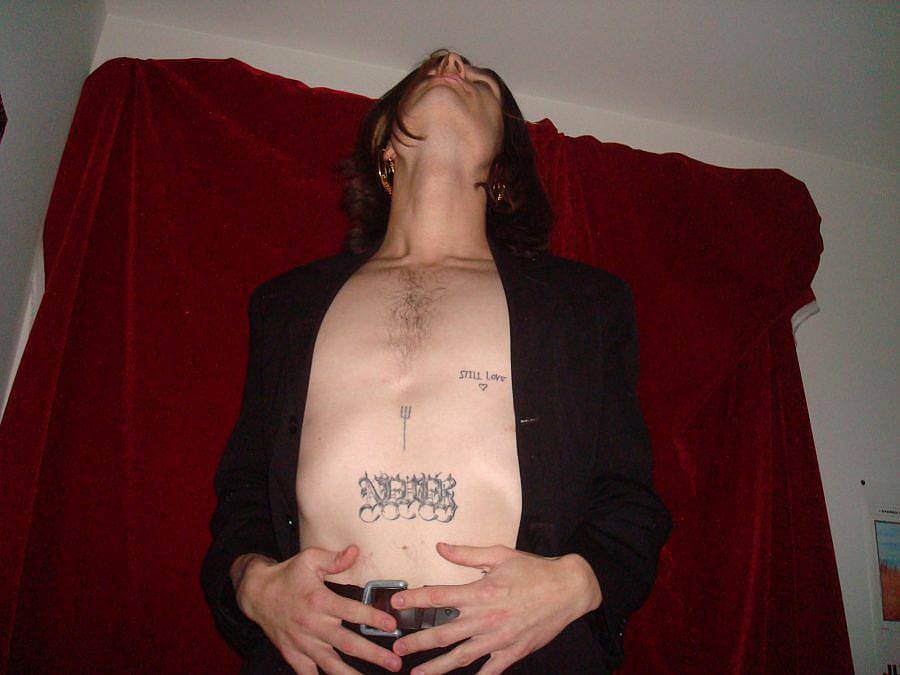
Could you talk about your new release Arkangel?
Arkangel is my fifth album as Forget Basement. It is the second piece of a numerological triptych (the first being The Elephant Tree) and was written, recorded, and produced from December of 2019 to December of 2020. The album went through many different iterations before resulting in the form it exists in now. I’d worked on what I thought would be the bulk of the album before scrapping it in June after changing my mind regarding the direction it was going in. The original version seemed too hopeful and optimistic, which I didn’t feel properly reflected the world I saw around myself. I became more irate and uneasy which I feel resulted in a more aggressive and apocalyptic sound. Arkangel took longer to finish than any previous album, for which I’m grateful. I have a tendency to rush, but I forced myself to be patient this time around.
How does living in Chicago affect your work?
Chicago is a much louder city than Seattle. As a result of moving here, I believe my music has become louder. Seattle also lacks a DIY electronic scene (and most “scenes” in general) which has been massively influential on me here. I was introduced to many new and different sounds through the rave and party scene, and met many of my current friends and collaborators through it. I think Chicago has a knack for innovation. There’s a scene for pretty much everything.
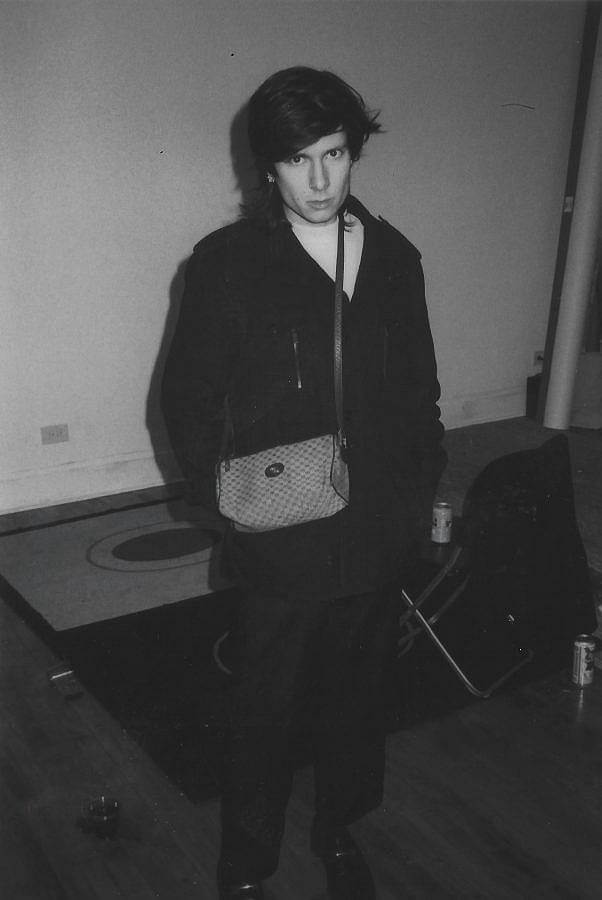
Electronic music and its related genres are in a very interesting and exciting state in terms of genre crossover and unexpected collaborations. What are your feelings toward the current state and trajectory of electronic music?
Electronic music has and always will continue to be about innovation. I believe that electronic musicians are inherently transhumanists utilizing modern technology as a means of expression and artistic self-augmentation in order to adapt alongside its rapid development. Electronic music today is just as exciting as it has ever been and will only continue to evolve as technology advances. The tools one needs to create electronic music are incredibly accessible now, which leads to so many new sounds, artists, and innovation. It’s really beautiful.
What does you workspace look like?
My setup involves my laptop, a recording unit, a SM7B, an Elektron Digitone and Monomachine, a Roland TB-3 and TR-8, a guitar and bass, and a lot of tangled cables.
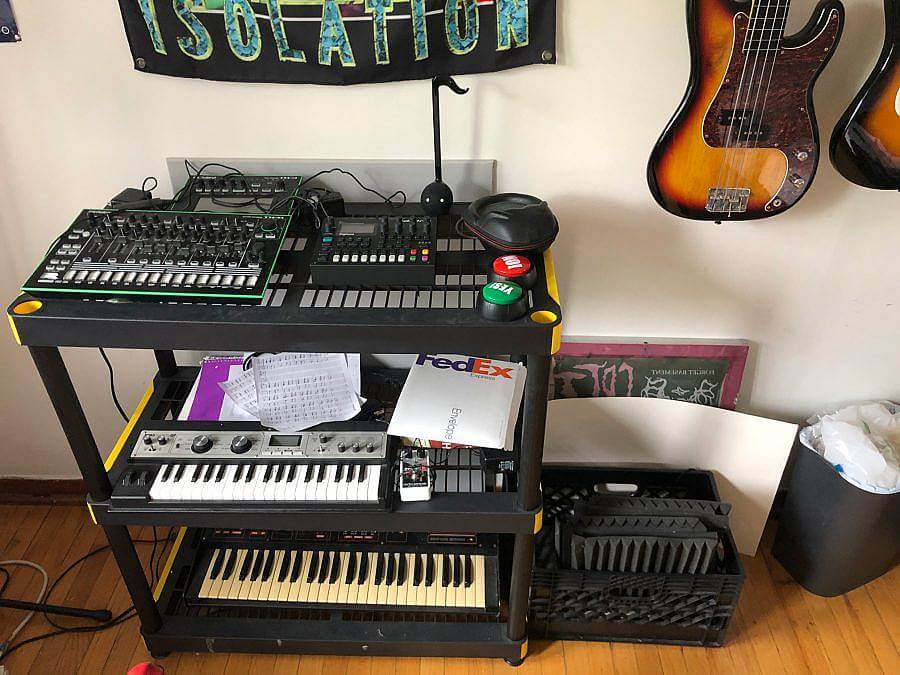
Do you come from a musical background?
My parents both played music while I was growing up but never pursued a career in the arts. They put me in piano lessons at a very young age, for which I am very thankful. I was classically trained for several years but eventually lost interest. I fell in love with electronic music and modern composition in elementary school and spent my time writing my own songs, rather than learning the pieces my teacher had assigned. In middle school, while briefly living at a friend’s house, I pirated Reason 5 and began to teach myself how to produce. Vocals became a prominent part of my process as I entered high school and fronted a couple of shitty hardcore bands. While I certainly enjoyed performing with others, I found far more comfort in creating alone, ultimately resulting in the birth of Forget Basement in December of 2015.
You are often pictured wearing formal outfits. Is this the way you typically dress day to day or is this a conscious, performative choice?
I’ve always been heavily influenced by goth music and artists, such as Nick Cave, both musically and aesthetically. Seeing this stark yet cohesive contrast between formality and chaos visually and amongst live performances stuck with me as a teenager, and adopting this dichotomy within my aesthetic is my form of a tribute in some sense. As for what I wear casually, it depends on the day. I do enjoy dressing formally, however, I don’t go out very often, so I don’t really get the opportunity to dress up.
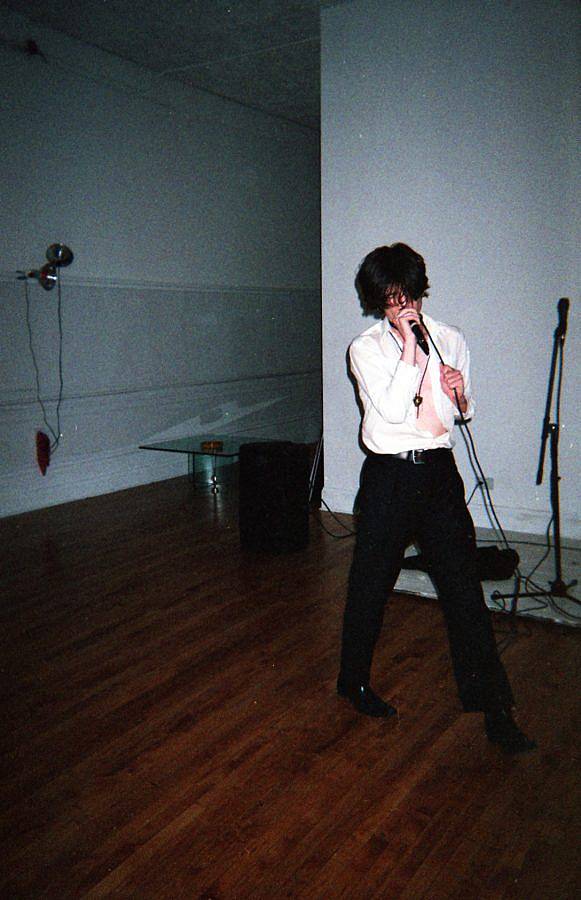
What are your feelings towards the current state of streaming services?
I have mixed feelings towards streaming services. From a practical standpoint, their creation was inevitable. I do believe that the accessibility of streaming services renders them necessary, however, it is no secret that they are a result of a capitalistic system that acts as a pyramid scheme advertising itself as the artist’s only means of success and communication while simultaneously stealing their source of income. It is a completely unfair system in which an independent artist can either market themselves on all platforms, or protest against these platforms and almost guarantee themselves failure. Ironically, I do use streaming services for the convenience, accessibility, and price. Bandcamp does a wonderful job at making an effort to support artists, so I encourage everyone to use that platform.
What have you been listening to lately?
I’ve been a bit scattered lately, but find myself constantly listening to Emma et Cetera’s new EP I Only Have Memories of Dancing, Tommy Goodroad’s Swimming in the Clay, Elevenpigs’ Mirror World, and Friendship Bracelet’s Friendship Bracelet I.I also want to give a huge shoutout to Leah, Sainty, Kamilla Love, and Bean Boy. They are all absolutely incredible artists that I recommend everyone pay attention to.
Interview conducted and composed by Sam Dybeck.
